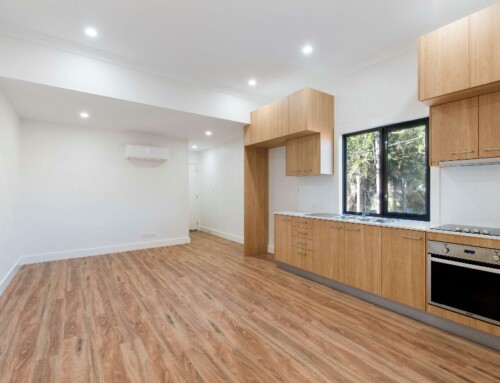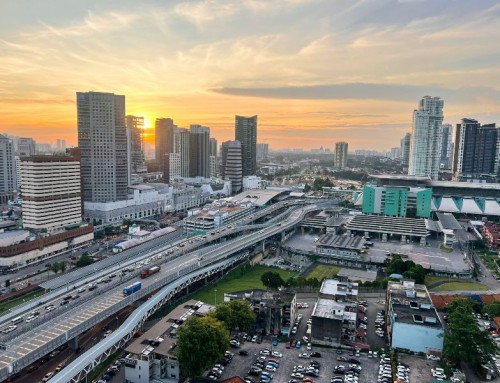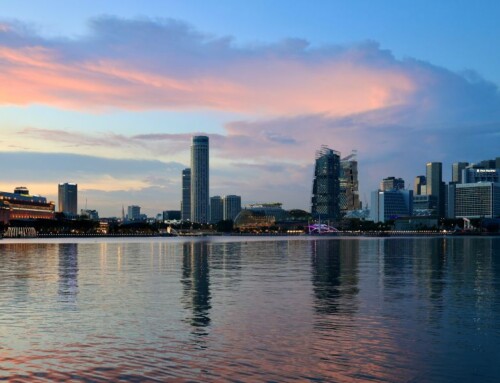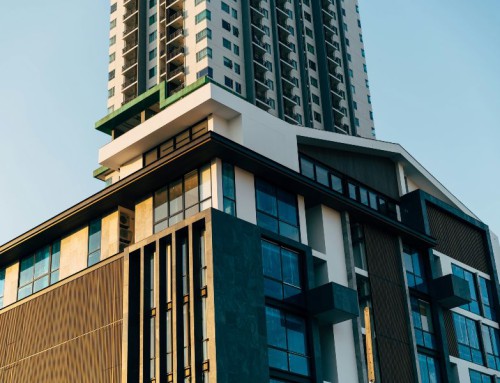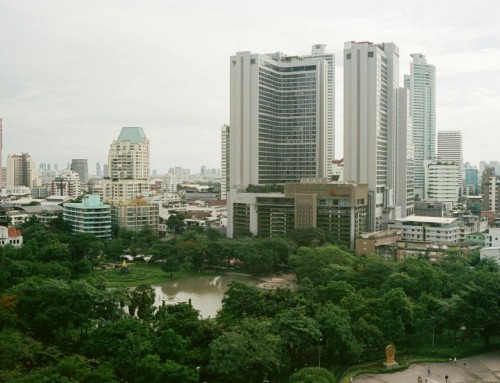For a start, I do think that Singapore property prices are high and prices, in general, are due for a correction. What I do not think will happen is a large and sustained correction where many property prices fall drastically. I do think that a greater appreciation of various disciplines is needed to better understand where asset prices are going. I do not agree with real estate practitioners hailing the recent property purchases by British Billionaire James Dyson as a sign that the property market is recovering and is attractive to all foreigners. Such properties are only affordable to a very small group of global buyers and such transactions are not indicative of general market demand. Conversely, for those that are hoping for a Singapore property market crash, I personally do not think that anything in the Singapore property market warrants this.
1) Debt levels are controlled by government policies
The Total Debt Servicing Ration (TDSR) that was put in place restricts the total amount of debt a person can undertake in relation to his or her income. The TDSR was put in place since June 2013 and since then, buyers of properties, applicants of credit cards, purchasers of cars and just about anyone who wants to obtain financing from a financial institution in Singapore had to adhere to the loan limits. It has been a good 6 years since TDSR has been implemented and it would be safe to say that the TDSR has curbed excessive risk-taking to a large extent. Those who are hoping for large chunks of mortgages to go underwater and subsequently result in distressed sales throughout the island should be sorely disappointed.
2) The Singapore government will support the economy
There are some who predict that the job market will be severely affected when the eventual downturn occurs. However, more often than not, the Singapore government is readying itself and I do believe that a stimulus package will be implemented to stimulate a flagging economy in the event of a global slowdown. Singapore, unlike many other countries around the world, has strong reserves and will be able to draw down on these reserves. In fact, it is because the government dipped into our past reserves in 2009 to the tune of $4.9 billion during the Global Financial Crisis that Singapore was able to weather such a huge financial storm.
Also, it is important to note that the value of our reserves is also pegged to the price of land which in turn is related to property prices. Thus a significant fall in property prices does affect the value of Singapore’s reserves. It is important for the Singapore government to be able to defend property values as it directly affects the country’s reserves.
3) Singapore is a stable and attractive proposition for businesses
When it comes to investing or starting a business, predictability and stability of the government is paramount. Singapore is seen as a very safe haven in an ever tumultuous global political climate. In times when similar financial hubs like London and Hong Kong are struggling with instability, it would be safe to say that barring an absolute freak of an election, the ruling People’s Action Party (PAP) will be governing Singapore for the foreseeable future. The ruling party that forms the government has shown that it will step in and defend the Singapore economy and businesses in times of economic downturn. The acceptance of foreign investment and the government’s accommodating tax and incentive structure make Singapore a very welcoming place for foreign businesses. In fact, the tax reliefs for new startups make it extremely attractive to set up a new company in Singapore. When foreign companies come to Singapore, they hire locals as well as bring some of their staff into the country. This, in turn, drives the economy and keeps wages stable.
4) Certain costs of living are actually falling
Core inflation is rather low currently and in some cases, the cost of daily items has decreased. Take the liberation of the electricity market for example. The open electricity market opened up the possibility of purchasing electricity from a whole host of retailers. This meant lower electricity prices for households due to the competition. Technology has also helped to lower the prices of goods and services by providing platforms where consumers can compare and purchase goods and services online. In short, certain daily items are getting cheaper and this keeps more money in the pockets of consumers. This excess can be spent on other items like a mortgage. Consider this, in the past, furnishing and fitting out a newly purchased property was a costly affair but yet today many homebuyers look to online platforms and ship lights and furniture from places like China at a fraction of what it would cost previously.
5) Singapore is shifting its focus to new industries
The main source of revenue for the Singapore economy has been exports, particularly electronics, chemicals and services. With the ongoing trade war, exports have taken a substantial hit and recent data seem to suggest that Singapore may be in for a technical recession soon. As Singapore is a very open economy with close trading ties to the world’s two largest economies, the US and China, a trade war between the two does not bode well for Singapore.
Much has been made of the flagging retail sector and how empty shopping malls are scattered all over the island. This is due to a structural shift in the way that consumers shop with digital purchases taking over traditional brick and mortar spaces. I have always stated that there is no good resolution to the hoards of retail shops that sit empty. Unlike residential properties where an increase in population growth could absorb excess supply, consumers are only going to get more entrenched in the digital space and thus commercial spaces, to a large extent, are going to see extremely weak demand.
This is where I would laud the Singapore government in identifying such negative trends and shifting focus away from what cannot be controlled. Singapore is embracing information technology and has taken effort and spent a large amount of money to grow this sector. Also, Singapore is and has been for a significant period of time, a regional hub for wealth management. I do believe that this sector still has much room for growth and the Singapore government is placing much emphasis on this sector. My next point would highlight this.
6) Recent legislation suggests that Singapore is aiming to further enhance its reputation as a fund management hub
The Variable Capital Companies Act was passed in parliament on October 2018 and this bill aims to boost the fund management industry in Singapore by creating a new flexible fund structure to rival jurisdictions in places like Cayman Island and Luxembourg. This would allow Singapore to attract even more foreign wealth onto its shores and with it, supporting service providers like lawyers, accountants and bankers will reap spillover benefits. Moreover, Singapore is in a prime position to benefit from the fallout of Brexit and the turmoil in Hong Kong as wealth managers look for alternative jurisdictions to park their capital. In January 2019, PwC released a report that stated that it expected assets under management in the Asia-Pacific region to grow at a compounded annual rate of 8.7 per cent from USD$15.1 trillion in 2017 to USD$29.6 trillion in 2025.
7) The government has a role in influencing property prices
We should also not discount that the Singapore government has a substantial role to play in influencing property prices. It was the loose immigration policy in the period around 2007 which caused Singapore property prices to fall and we cannot discount the fact that in view of Singapore’s low birth rate, Singapore has to inadvertently bring in more foreigners to make up the shortfall. I do think that it would be detrimental to many stakeholders to have Singapore property prices fall off a cliff. The current cooling measures provide a substantial buffer and when removed, will provide respite to a falling property market.
Do not get me wrong by thinking that I am saying that Singapore property prices are going to continue in an upward trajectory. I still maintain my stance that Singapore property prices are too high and that we are due for a correction. However, based on the confluence of reasons which I have listed, the correction should not be severe as in previous recessions. I do think that property investment analysis should encompass a more holistic view and not just on mere facts and figures solely extracted from the property market.
Yours Sincerely,
Other related articles:
Are Singapore property prices too high?
My views on the Singapore and Bangkok property markets
A government’s role in influencing property prices

